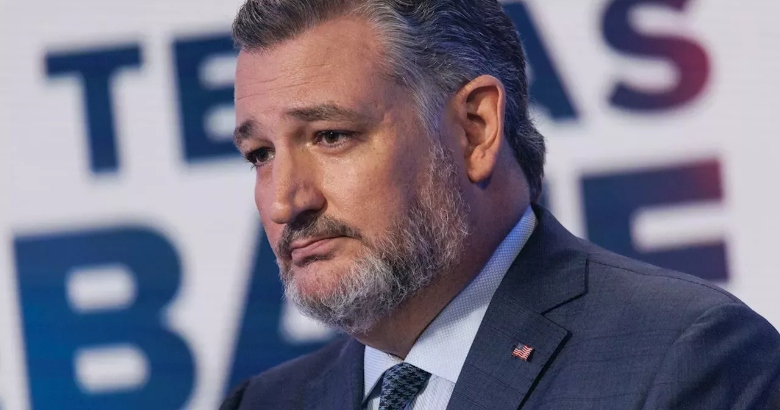With the recent Republican takeover of the Senate, Texas Senator Ted Cruz is positioned to take on a pivotal role as the incoming chairman of the Senate Commerce, Science, and Transportation Committee. This influential position not only grants Cruz substantial authority over crucial policy areas—such as energy, telecommunications, big tech regulation, and transportation—but also offers him a platform to champion his conservative agenda, emphasizing limited government and free-market principles.
As Cruz steps into this chairmanship, he is poised to push forward an ambitious agenda that includes everything from energy independence to commercial space exploration. “The mandate of the Commerce Committee is vast,” Cruz noted. “It covers aviation, communications, railroads, space—a force multiplier that lets us engage on 5x or 10x as many issues.” Cruz’s appointment is expected to usher in significant conservative-driven legislative initiatives that may reshape the nation’s regulatory landscape for years to come.
One of Cruz’s primary focus areas is expected to be energy policy, an issue of great importance to both his home state of Texas and his conservative base. Cruz has been a vocal advocate for oil and gas production, opposing federal climate mandates that he believes stifle the energy sector’s growth and hurt America’s national security. Cruz has consistently criticized measures that would limit offshore drilling in the Gulf of Mexico, arguing that such policies endanger domestic energy independence.
During his victory speech, Cruz reiterated his commitment to defending Americans’ rights and prioritizing energy independence. “We must defend our God-given rights—not some of them, not most of them, but all of them,” he proclaimed, setting the stage for his approach to committee leadership. He outlined a legislative agenda that includes stronger border security, protection of individual freedoms, and, importantly, the continued support of the domestic energy sector.
Another focal point of Cruz’s agenda will be addressing the influence and power of big tech companies. For years, Cruz has been vocal about the perceived overreach of major tech corporations, which he argues hold too much sway over public discourse and privacy. Cruz’s committee role allows him to directly address issues surrounding data privacy, censorship, and antitrust concerns in the tech sector.
Cody Venzke, senior policy counsel at the American Civil Liberties Union (ACLU), recognized Cruz’s scrutiny of tech giants, saying, “Senator Cruz has brought a lot of attention to the power of tech companies on our lives.” Although the ACLU may not always align with Cruz’s views, Venzke acknowledged the significance of his influence on consumer privacy and data abuse issues. Cruz’s challenge will be in balancing consumer protection with his commitment to free-market principles—a balance that could significantly impact the regulatory landscape for tech companies.
Cruz has also demonstrated legislative skills in transportation, an area over which the Commerce Committee holds significant sway. His leadership was instrumental in advancing the Federal Aviation Administration (FAA) Reauthorization Act, a bipartisan effort aimed at enhancing air safety and modernizing travel infrastructure. The bill, which passed the Senate by an overwhelming majority, includes provisions to expand the air traffic controller workforce, implement advanced runway safety technology, and improve cockpit voice recorders.
Infrastructure spending is another key issue Cruz is expected to tackle as Commerce Committee chairman. He has been critical of what he views as excessive federal spending on infrastructure, even going as far as calling for an investigation into the Biden administration’s use of promotional signage for infrastructure projects. Cruz has argued that these signs may have violated the Hatch Act by using taxpayer money for political purposes.
As head of a committee with jurisdiction over commercial space policy, Cruz is positioned to shape the future of space exploration, especially with Texas-based companies like SpaceX at the forefront of the industry. Under his chairmanship, the committee will likely address issues such as satellite operations, space debris, and lunar exploration, all of which are expected to grow in importance as private industry pushes the boundaries of space.
“His position will be incredibly important,” commented Mike French, a consultant for space companies. French expressed optimism that Cruz’s chairmanship could help provide a clearer framework for future space initiatives, including lunar exploration. “If we’re going to be on the moon, it’s good to have Congress weigh in on a long-term framework.”
In his new role, Cruz will have the opportunity to drive forward conservative priorities on a wide range of issues. With authority over numerous industries, Cruz is expected to employ his position to advance policies that he believes will reduce federal oversight, empower the private sector, and uphold individual freedoms. His track record on issues like big tech regulation and energy production gives insight into his approach, which is likely to emphasize deregulation and free-market solutions.
Kevin DeGood, director of infrastructure policy at the Center for American Progress, noted the potential reach of Cruz’s influence. “As chairman of the Commerce Committee, Sen. Cruz has an incredible amount of power. He could hold hearings on almost any topic he likes, using this position to advance his conservative agenda.”
As Cruz steps into this powerful role, the direction of America’s commerce policies, from energy and infrastructure to space and technology, may shift significantly. His actions will likely shape not only the economic landscape but also the political climate in which industries operate. For supporters, Cruz’s leadership offers a bold vision for limited government; for critics, it represents a challenge to regulatory norms. Either way, Cruz’s impact on the Senate Commerce Committee will be closely watched as he moves forward with his ambitious legislative plans.



I wouldn’t trust the ACLU as far as I could throw them. They are against everything good and decent.
They are anti-America, anti-Legal American Citizens, anti-White, anti-Christian, anti-heterosexual, anti-deportations of illegal-alien-invaders……..
if it’s bad for the country, they are all for it.